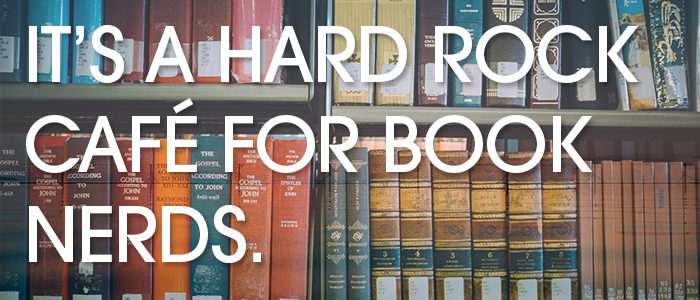Research Beyond the Archives
Julia Gordon-Bramer | November 2017

Whether you have a term paper, a graduate thesis, or you’re planning to write a book, graduate writing students usually end up in library archives at some time in their academic career. Archives are wonderful places, full of musty old books, diaries, journals, and ephemera that once belonged to famous people worthy of study. It’s a Hard Rock Café for book nerds. There are certain rules for admittance and handling these materials, which will be different with every library and collection. But once you’re in, it is a heady, wonderful, privileged education not open to just anyone off the street.
Not everyone is as lucky as me, with a subject of scholarship (the writer Sylvia Plath) who has not one, but two major, vast archives in the United States, and a lot of smaller holdings in various other libraries. Most Plath scholars pretty much live at these archives, reading Plath’s letters and journals, calendars and scrapbooks, first drafts and revisions, all saved by her mother who must have been somewhat of a hoarder to keep so much. For most scholars, the work ends there, in the archives. But what if you’ve done that, or your archives are limited, or worse, nonexistent? What then to understand your subject?
That’s when we look more broadly. To follow are suggestions for understanding a figure from contemporary history beyond the archives:
-
Personal Libraries—There are often lists of books owned by your subject of scholarship that other scholars have noted and shared from their work. These can be valuable with regard to understanding personal interests of your subject (especially if there are many books they owned on one subject). LibraryThing.com is a valuable resource for lists of personal libraries, as well as some archives which also house personal libraries on occasion.
-
Annotated Books—Some writers, like Sylvia Plath, not only inscribed her favorite books with her name, the year, and sometimes the location, but she heavily underlined and wrote comments in the margins (“marginalia”). These “former-owner” books, as the library archives store them, can be a goldmine in understanding important passages to your subject, or where your subject may have felt a connection to the work, or a problem with the material. Prepare to do a lot of reading in a sealed-off room after you’ve proven yourself as a scholar. Not just anyone can handle the “former-owner” stacks of books.
-
Magazines, Newspapers, and Periodicals—Did your subject mention a favorite newspaper or magazine in journals or letters? Did they publish in certain magazines? If so, get on eBay and buy old copies, or visit your library to read back issues. Sylvia Plath, for instance, loved The Atlantic Monthly, and she and her husband Ted Hughes were regularly published in this magazine in the late 1950s and early 1960s. Plath mentioned The Atlantic often in journals and letters. This magazine helps me, as a scholar, to apply context to what Plath was reading and what was happening in the world at the time she wrote her poetry and fiction. I happen to own most of The Atlantic Monthly issues from January 1955 to February 1963, the month Plath died.
-
The Wider World—What were your subject’s interests? Sylvia Plath loved literary fiction and poetry, foreign films, plays, and she was developing an appreciation of opera in her last year. With this in mind, combined with my personal “decoding system,” of her work, I can see, for instance, how Aldous Huxley’s Brave New World and Shakespeare’s The Tempest are all through Plath’s poem, “Morning Song.” Or Ingmar Bergman’s film, The Magician, and the book and movie of Wuthering Heights inspired her poem, “The Couriers.”
- The Spiritual World—Did my words about my “decoding system” pique your interest? Well, I came to understand Plath through her personal interests, which included a serious fascination with tarot, Ouija, and other forms of mysticism. Many writers, like W.S. Merwin, T.S. Eliot, W.B. Yeats, and James Merrill had occult interests. Writers like Robert Lowell pursued Catholic mysticism. And so understanding your subject’s spiritual beliefs or religious practices can help you to interpret the artistic subtexts and themes if your artist also shared this passion.
Our library archives are wonderful places, but they can give you tunnel-vision if that’s the only place you look. Learn to view your subject in context with their world and their current events. Ask yourself how the politics and news of their time might have affected them. It may entirely change how you see your subject and their work.
Julia Gordon-Bramer is the author of Fixed Stars Govern a Life: Decoding Sylvia Plath, volume one (2014, Stephen F. Austin State University Press) and the Decoding Sylvia Plath series. Her latest releases are Decoding Sylvia Plath’s “Daddy”: Discover the Layers of Meaning Beyond the Brute and Decoding Sylvia Plath’s “Lady Lazarus”: Freedom’s Feminine Fire (2017, Magi Press). She is a professional tarot card reader in addition to teaching graduate-level creative writing at Lindenwood University in St. Louis, Missouri. In 2013, The Riverfront Times voted her St. Louis’ “Best Local Poet.” Learn more at www.juliagordonbramer.com.
